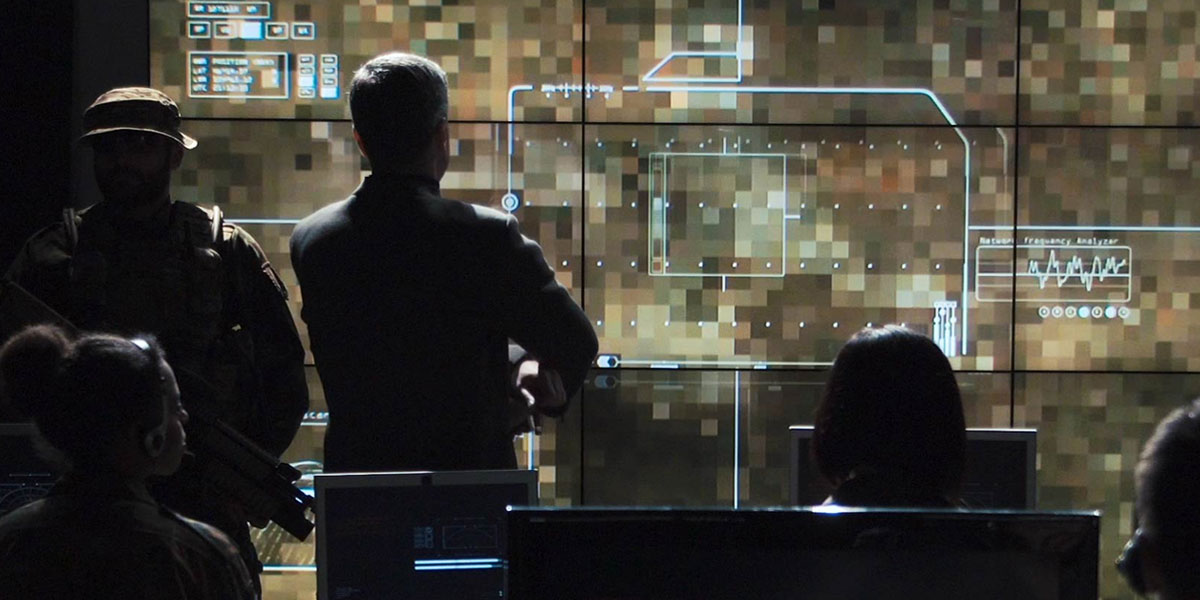The U.S. military maintains a large and highly-sophisticated intelligence apparatus that draws from the resources and expertise of many different agencies and military branches. For example, the Intelligence Community website – administered by the Office of the Director of National Intelligence – lists 18 different agencies that support the nation’s military intelligence efforts, including, but not limited to:
- Central Intelligence Agency
- Federal Bureau of Investigation
- National Security Agency
Although the goals of the different agencies within the intelligence community differ widely, intelligence experts who work in this capacity do so to maintain national security; gather information about political, military and ecological developments abroad; and support the U.S. military during critical operations. Jobs in military intelligence can be some of the most interesting and rewarding among all military careers.
So, what does a military intelligence officer do, and what are the requirements? In this article, we outline job requirements and explore four of the most common military intelligence jobs.
Military Intelligence Officer Requirements
In addition to the requirements for enlisted military service members, military officers are typically required to have completed a bachelor’s degree at minimum; this is also the case for intelligence officers.
Security clearances are also a part of the requirements for jobs in the intelligence community. The security clearance process varies depending on the hiring agency, but you’ll typically need to first receive a conditional offer of employment, and then go through a series of steps, some of which may include:
- Background investigations
- Polygraph tests
- Psychological or medical evaluations
In total, the security clearance process can take 9-12 months. Your eligibility may be based on factors such as drug or alcohol consumption, criminal involvement, foreign influence, and psychological conditions.
Military Intelligence Jobs
With 18 different government agencies employing intelligence professionals, there are many kinds of jobs available. Here’s a selection of four example careers in military intelligence.
1. Intelligence Analysis
As one of the most interesting and diverse military intelligence jobs, analysis is a hands-on role in which officers examine data to draw conclusions about foreign and domestic issues and threats. This can involve analyzing geospatial intelligence, intercepted messages, or using digital surveillance to monitor troop or munitions movements. Intelligence analysts work with others involved in missions or data gathering, coordinating with other teams to report their findings.
2. Cybersecurity
The advent of cyberwarfare has necessitated a concerted effort to bolster the U.S. military’s ability to track, analyze and combat cyberattacks of all forms. Whether it’s protecting networks from attacks or going on offense to gather intelligence about foreign adversaries and preventing their systems from attacking others, each government agency has a role to play.
According to the U.S. Intelligence Community Careers website, agencies connected to the intelligence community hire cybersecurity professionals to perform roles such as:
- Computer network defense analyst
- Information assurance engineers
- Technical counterintelligence officers
3. Data Science
Another highly technical role, data science is a critical position that involves managing, storing, securing and analyzing the data our military and allies collect. Data science professionals in the intelligence community catalog, store and maintain critical data assets while also working to make that data accessible to military strategists, analysts and leaders.
Working in data science requires advanced mathematical skills. Those with an educational background in data analytics – potentially from a business or information technology degree program – can be a good fit for these positions as well.
4. Logistics
In this less technical – but no less essential – role, working in logistics for the intelligence community means handling the resourcing of intelligence teams, providing them the support and equipment they need, and coordinating in service of a broader mission. Logistics professionals in the military use traditional business skills such as accounting, cost analysis, and efficiency, as all are key parts of managing the physical facilities and infrastructure for intelligence operations.
Learn the Fundamentals of Military Intelligence at CSU
These military intelligence careers represent just a few of the many technical and administrative positions available in the military intelligence community. Getting a foundational education in the history, science and theory of military intelligence is a great way to show your dedication to the field and to determine which role strikes you as the best way for you to serve.
Here at Columbia Southern University, we offer multiple online military studies degree programs, including a bachelor’s degree in military studies with a concentration in intelligence. This degree concentration provides insights into the history of the intelligence community, its approach to analysis, and the leadership skills needed to thrive in a career in military intelligence.
To learn more about CSU’s online degree programs in military studies, visit our website.
Multiple factors, including prior experience, geography and degree field, affect career outcomes. CSU does not guarantee a job, promotion, salary increase, eligibility for a position, or other career growth.
Any reference to United States Department of Defense (DoD) personnel, products or services does not constitute or imply endorsement by the DoD. Paid ad. No federal endorsement of advertiser(s) intended.





